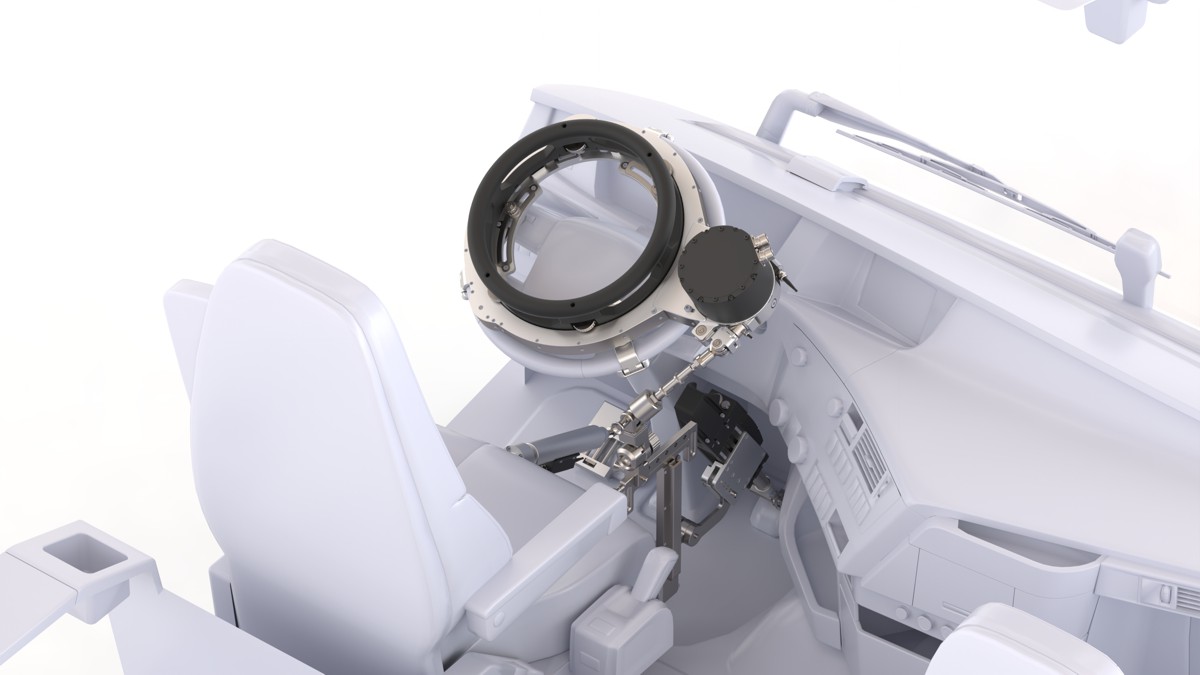Humanetics develops Modular Driving Robots for Vehicle Testing
In a world where automotive safety is rapidly evolving, the demand for advanced vehicle testing solutions has never been greater. One company pushing the boundaries is Humanetics, a leading innovator in automotive testing systems.
Their latest breakthrough, the DrivingRobot modular (DRm), is poised to revolutionise Advanced Driver Assistance Systems (ADAS) testing across a broad spectrum of vehicles, from passenger cars to heavy-duty trucks. This new modular design offers exceptional flexibility, precision, and cost-efficiency, aligning with the increasing emphasis on road safety, particularly for large commercial vehicles.
As road safety protocols tighten globally, especially concerning heavy goods vehicles (HGVs), modular testing systems like the DRm are becoming indispensable tools in the automotive industry.
Why Truck Safety is a Growing Priority
Heavy-duty trucks pose a significant risk on the road, accounting for a disproportionate share of severe accidents. For this reason, both Euro NCAP (European New Car Assessment Programme) and NHTSA (National Highway Traffic Safety Administration) have sharpened their focus on improving commercial vehicle safety standards.
The U.S. Department of Transportation’s NHTSA recently announced that by September 2029, automatic emergency braking (AEB) systems, including pedestrian detection, will become standard in all passenger cars and light trucks. While this regulation primarily targets smaller vehicles, it’s a clear signal of the industry’s shift towards mandatory ADAS features. Not to be outdone, Euro NCAP is developing its own rigorous testing protocols for HGVs, with the first results expected in late 2024.
Truck safety, once a niche area of concern, has now catapulted to the forefront of automotive engineering. The growing regulatory pressure and public interest have highlighted the critical need for comprehensive ADAS testing solutions that can handle the unique challenges posed by large, heavy vehicles. Enter Humanetics’ DRm system, specifically designed to tackle these issues.
The DRm System: A Modular Marvel
At the heart of Humanetics’ innovation is the modular design of the DRm system. Unlike conventional driving robots that cater to specific vehicle types, the DRm is designed to offer maximum flexibility. This is particularly important given the diversity of vehicles on the road today—each with its own geometry, size, and testing requirements.
The DRm system splits its components into separate modules:
- SteeringRobot modular (SRm)
- PedalRobot modular (PRm™)
- Steering Wheel Adapter
Each component can be used independently or as part of a larger system, allowing testing facilities to mix and match based on the vehicle being tested. For instance, the DRm system can be configured to accommodate a variety of steering wheel diameters—from 30 cm to 50 cm—making it suitable for everything from compact cars to heavy-duty trucks.
Mark Westen, President of Humanetics Safety, underscored this versatility: “We developed the DRm to be a game-changer in the world of vehicle testing. With its modular system, it provides unparalleled flexibility for ADAS testing across multiple vehicle types. This means faster test preparations and, ultimately, safer roads as we advance toward the Vision Zero goal of eliminating road fatalities.”

Meeting ADAS Testing Standards with Precision
One of the key challenges in ADAS testing is replicating real-world driving scenarios, which often involve complex manoeuvres and unpredictable road conditions. The DRm system is built to excel in these environments, offering high torque and precise control to simulate even the most challenging driving situations. From emergency braking to evasive steering, the system ensures that ADAS features such as lane-keeping assistance and collision avoidance are thoroughly vetted.
The DRm system is particularly well-suited for testing under the stringent Truck Safety Protocols. With HGVs now under the microscope, testing facilities need tools that can handle the size and complexity of these vehicles. Humanetics’ modular system, with its powerful torque and adaptable design, fits the bill perfectly.
But it’s not just about heavy-duty trucks. The modular nature of the DRm system means it can easily scale down for passenger vehicles, offering the same level of precision and control. The soon-to-be-released DRm60™ is specifically tailored for smaller cars, complementing the already available DRm150™ for larger vehicles like buses and trucks.
Speeding Up Test Preparations: Efficiency at its Best
Vehicle testing can be a time-consuming and expensive process. However, the DRm system is designed with efficiency in mind. It boasts one of the quickest installation processes in the industry, with a tool-free mounting system for the steering robot and a pedal robot that requires only a single tool. This reduces downtime and enables faster test preparations, which is a significant advantage for testing facilities working under tight deadlines.
Additionally, the DRm’s components can be easily swapped in and out depending on the vehicle being tested, further speeding up the process. This adaptability not only saves time but also reduces costs, making it a highly cost-effective solution for OEMs and automotive testing centres alike.
Humanetics: A Legacy of Innovation
Humanetics is no newcomer to the automotive testing space. The company, headquartered in Farmington Hills, Michigan, is a global leader in active safety systems, crash test dummies (ATDs), simulation software, CAE models, and precision sensors. With over 1,000 employees spread across 26 facilities worldwide, Humanetics has built a reputation for delivering cutting-edge technology that meets the evolving needs of the automotive industry.
Their development of the DRm system is just the latest in a long line of innovations aimed at improving road safety. By providing testing solutions that are both flexible and precise, Humanetics is helping drive the industry towards a future where traffic fatalities are a thing of the past.
A Safer Future on the Horizon
As the automotive industry continues its march towards automation and advanced safety features, the need for versatile and efficient testing solutions will only grow. With its modular design, unparalleled precision, and ability to test a wide range of vehicles, the DRm system is perfectly positioned to meet this demand.
In the words of Mark Westen: “The DRm is more than just a product; it’s a tool for shaping the future of road safety. We’re committed to ensuring that the vehicles of tomorrow are safer than ever before, and the DRm is a crucial part of that mission.”
With innovations like the DRm, the road to Vision Zero, a future without traffic fatalities, looks increasingly achievable.




























